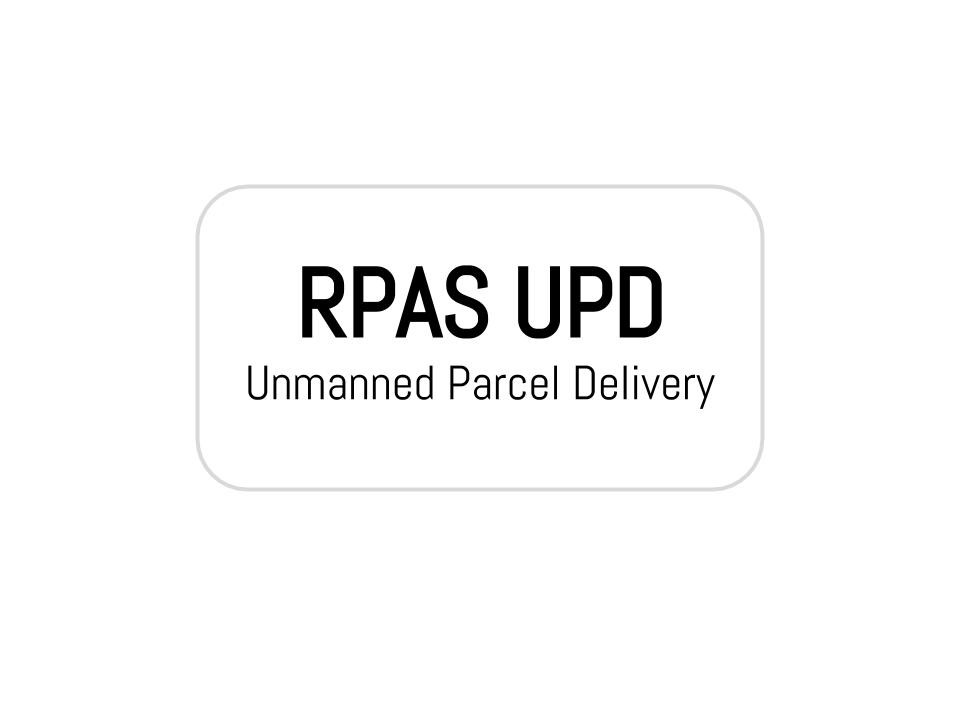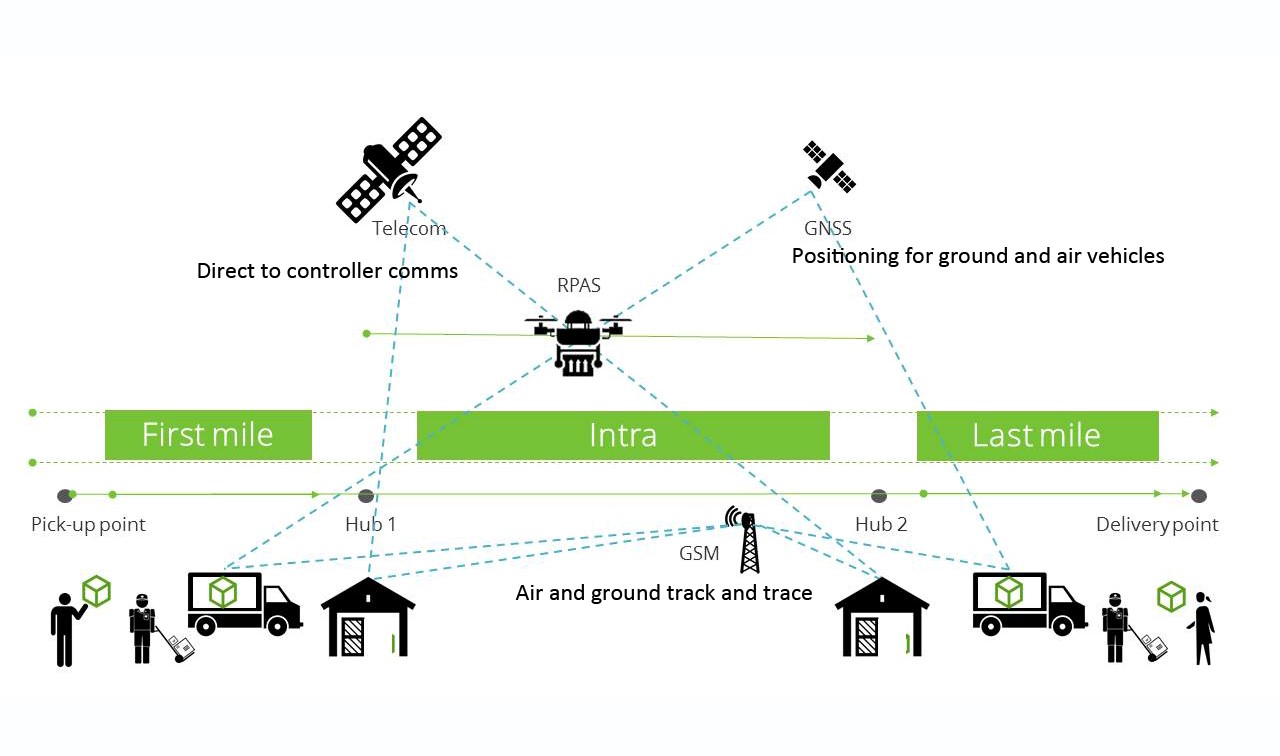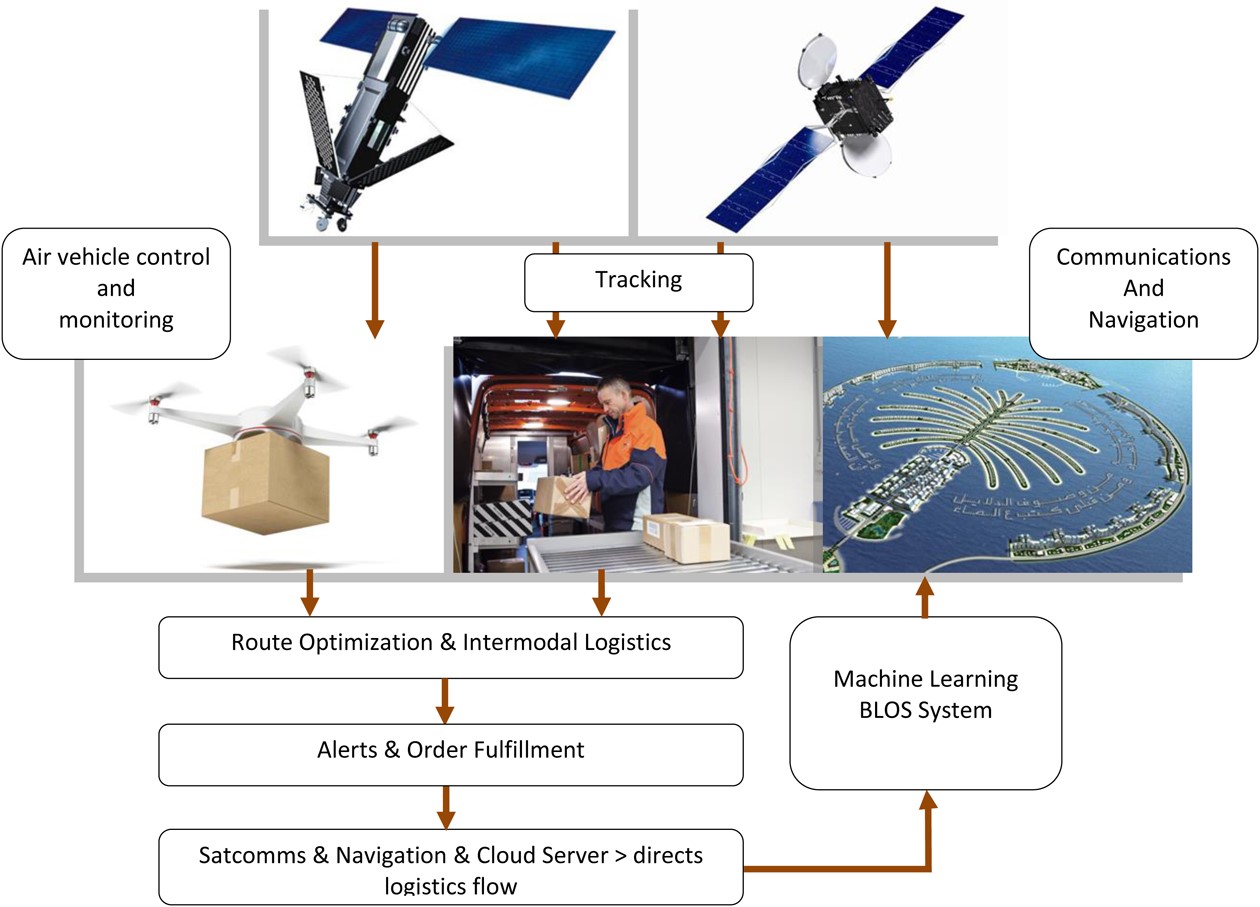
Objectives of the service
The RPAS UPD project aims to utilise RPAS technology to provide a high-performing unmanned delivery solution for customers in remote locations. On track for completion within 36 months, the project incorporates a technical and commercial feasibility study into the use of remotely piloted systems in parcel delivery, culminating in the eventual demonstration and operation of a live UPD service to customers in hard-to-reach locations.
Users and their needs
Based on a feasibility study poll, the target market for the RPAS UPD service lies in three main sectors:
- Regular express parcel delivery
- High-value asset delivery
- Emergency/urgent needs supply to disaster areas
It is essential that the service is commercially sustainable, and as such, end-users require an express delivery solution that is:
- Cost-effective
- Reliable and secure
- High-performing
In order to meet these user requirements, the RPAS craft must be capable of travelling long distances and carrying a considerable payload. Due to these robust requirements, the technical feasibility of the project is just as vital as its commercial longevity.
To enhance the project’s understanding of user needs, three end users from the foreseen target markets are submitting their requirements for a live RPAS UPD service to the project.
Markets/Countries
- Regular express parcel delivery – UK, BENELUX, others
- High-value asset delivery service – UK, BENELUX, others
Emergency/urgent needs supply to disaster areas – UK, BENELUX, with others considered
Service/ system concept
Involving an autonomous network of ground and air transportation, the UPD service will operate along static flight routes between fixed arrival and departure locations, a model that can be scaled upwards to meet demand. Operating under a reduced level of autonomy with some human interaction in the early stages, the consortium envisages the service shifting towards greater autonomy when the necessary regulations and infrastructure are in place. Starting with just a few routes in the BENELUX and UK regions, the delivery network will expand in accordance with growing demand for the service and the certification of new delivery routes.

Space Added Value
Satellite and Beyond Line of Sight (BLOS) communications are indispensable to the success of the project. Enabling data communications far beyond the range of any existing terrestrial mobile network, satellite and BLOS communications will ensure the safety, security and reliability of the UPD service by allowing remotely piloted systems, and other vehicles in the delivery chain, to be connected and located at all times. The range and precision provided by satellite and BLOS communications play a vital role in guaranteeing the safety and autonomy of the UPD service.

Current Status
Project team successfully completed the feasibility study with a number of notable achievements. This was due to the starting point and task approach adopted by project lead. Starting with analysis and finishing with dissemination of results in the form of presentations to stakeholders:
- Macro analysis to identify target segment.
- Micro analysis to research individual organisations.
- Final selection is where three parcel delivery segments were selected for research in the macro analysis activities, with one chosen for market entry of IPD.
- Geographic targeting was used to identify the ‘best fit’ counties for service rollout, and potential end users/customers interviewed. During the Feasibility Study project team engaged with key stakeholders to gain their buy-in and support for the project.
- Market analysis identified the parcel market as being large with potential for further growth.
- Cost benefit analysis provided information on the viability aspects relevant for the future user/customer community.
- Non-economic viability analysis highlighted the relevance for the viability of the IPD service and its impact on the development and implementation of the service.
- Feasibility Study results were presented to key stakeholders in the Netherlands and UK. Project team received very positive and encouraging feedback regarding the results presented and the next steps for the follow-on demonstration project and the live IPD service rollout.






